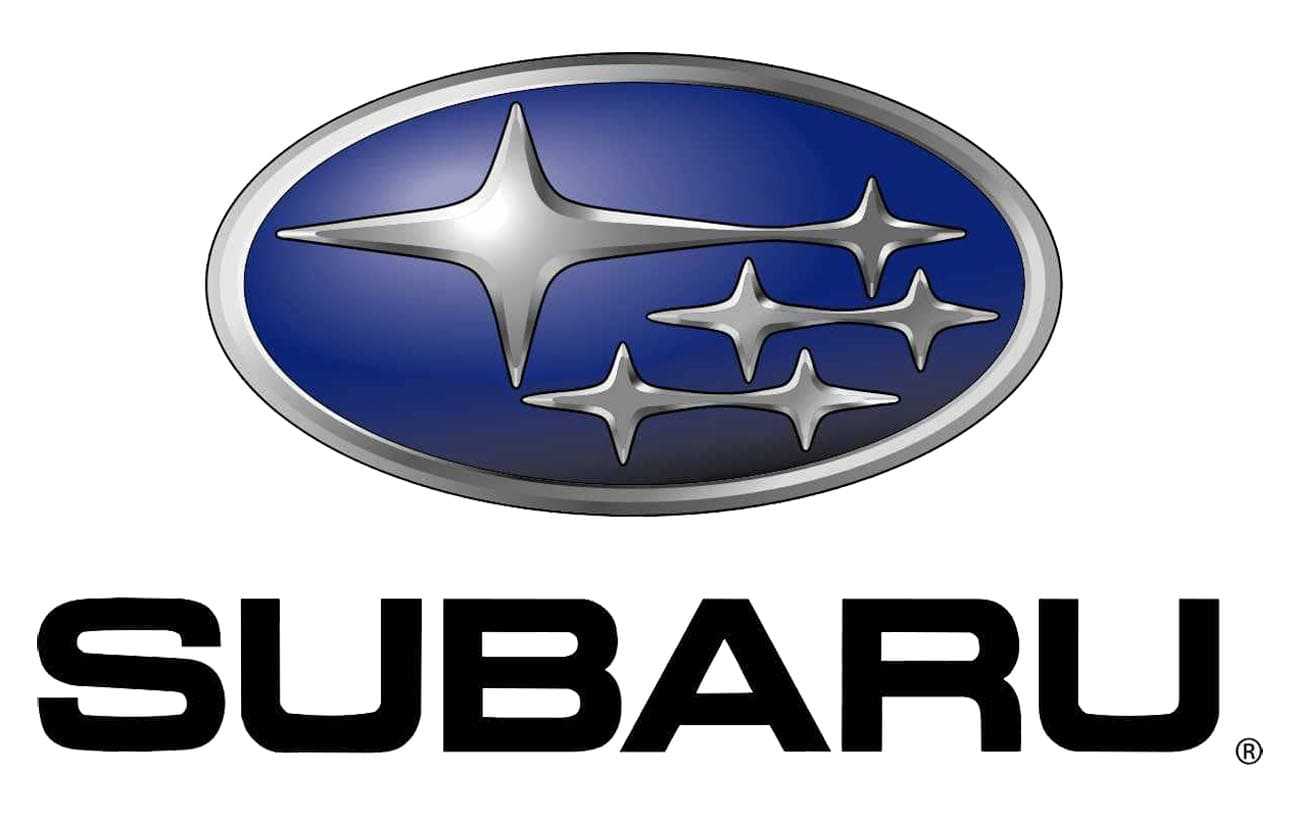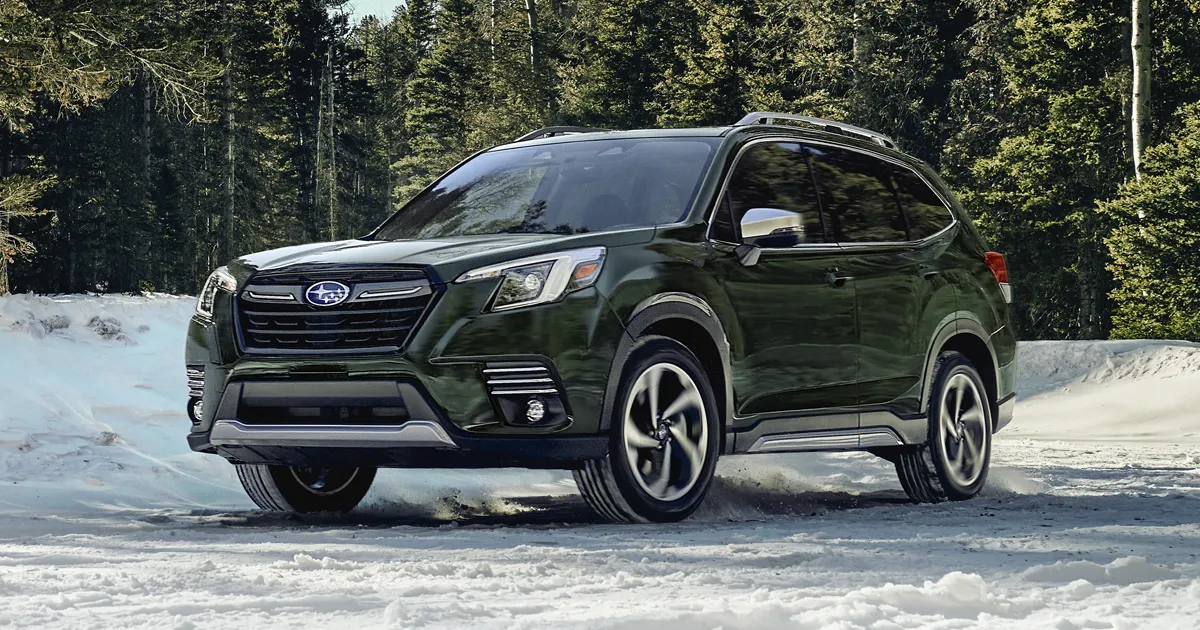
Subaru Forester 2023 Limited User Guide
The Subaru Forester 2023 Wilderness is a small SUV that is designed for off-roading and is tough enough to push the limits of adventure. Built to handle the roughest terrains, the Forester Wilderness jumps out with its bold and aggressive exterior design. It has unique styling features like exclusive front and rear bumpers, bold cladding, and distinctive Wilderness badging. When you step inside, you’ll find an environment that is both durable and comfortable. The Wilderness trim improves the cabin with water-resistant upholstery, sturdy materials, and orange contrast stitching that shows its adventurous spirit. The Forester Wilderness comes with high-tech features like an 8-inch tablet infotainment system with Apple CarPlay, Android Auto, and built-in navigation, so you can stay connected no matter where you go.
Safety is the most important thing, and the Forester Wilderness has Subaru’s suite of advanced driver-assist systems, such as adaptive cruise control, lane departure warning, and blind-spot tracking, which give you peace of mind in tough environments. The Forester Wilderness has a strong 2.5-liter four-cylinder engine and better off-road capabilities thanks to features like greater ground clearance, reinforced suspension components, and all-terrain tires. This gives you the confidence to go off the beaten path. With X-Mode, Subaru’s symmetrical all-wheel drive system improves traction and stability in a wide range of difficult situations. The Subaru Forester 2023 Wilderness is designed to be your ideal adventure companion, ready to take you on trips you’ll never forget. It can handle rough terrain and remote wilderness.
Seatbelt and SRS airbag
WARNING:
- All persons in the vehicle must fasten their seatbelts BEFORE the vehicle starts to move. Otherwise, the possibility of serious injury becomes greater in the event of a sudden stop or accident.
- To obtain maximum protection in the event of an accident, the driver and all passengers must always wear seatbelts when in the vehicle. The SRS (Supplemental Restraint System) airbag does not do away with the need to fasten seatbelts. In combination with seatbelts, it offers the best-combined protection in case of a serious accident.
Not wearing a seatbelt increases the chance of severe injury or death in a crash even when the vehicle has the SRS airbag. - The SRS airbags deploy with considerable speed and force. Occupants who are out of the proper position when the SRS airbag deploys could suffer very serious injuries. Because the SRS airbag needs enough space for deployment, the driver should always sit upright and well back in the seat as far from the steering wheel as practical while still maintaining full vehicle control and the front passenger should move the seat as far back as possible and sit upright and well back in the seat.
Child safety
WARNING:
- Never hold a child on your lap or in your arms while the vehicle is moving. The passenger cannot protect the child from injury in a collision, because the child will be caught between the passenger and objects inside the vehicle.
- While riding in the vehicle, infants and small children should always be seated in the REAR seat in an infant or child restraint system that is appropriate for the child’s age, height and weight. If a child is too big for a child restraint system, the child should sit in the REAR seat and be restrained using seatbelts. According to accident statistics, children are safer when properly restrained in the rear seating positions than in the front seating positions. Never allow a child to stand up or kneel on the seat.
- Place children in the REAR seat properly restrained at all times in a child restraint system or in a seatbelt. The SRS airbag deploys with considerable speed and force and can injure or even kill children, especially if they are not restrained or improperly restrained. Because children are lighter and weaker than adults, their risk of being injured from deployment is greater.
- NEVER INSTALL A CHILD RESTRAINT SYSTEM IN THE FRONT PASSENGER’S SEAT. DOING SO RISKS SERIOUS INJURY OR DEATH TO THE CHILD BY PLACING THE CHILD’S HEAD TOO CLOSE TO THE SRS AIRBAG.
- Always turn the child safety locks to the “LOCK” position when children sit in the rear seat. Serious injury could result if a child accidentally opens the door and falls out. Refer to “Child safety locks” P139.
- Always lock the passenger’s windows using the lock switch when children are riding in the vehicle. Failure to follow this procedure could result in injury to a child operating the power window. Refer to “Windows” P139.
- Never leave unattended children, adults or animals in the vehicle. They could accidentally injure themselves or others through inadvertent operation of the ve-hicle. Also, on hot or sunny days, the temperature in a closed vehicle could quickly become high enough to cause severe or possibly fatal injuries to them.
- When leaving the vehicle, close all windows and lock all doors.
Engine exhaust gas (carbon monoxide)
WARNING:
- Never inhale engine exhaust gas. Engine exhaust gas contains carbon monoxide, a colorless and odorless gas that is dangerous, or even lethal if inhaled.
- Always properly maintain the engine exhaust system to prevent engine exhaust gas from entering the vehicle.
- Never run the engine in a closed space, such as a garage, except for the brief time needed to drive the vehicle in or out of it.
- Avoid remaining in a parked vehicle for a long time while the engine is running. If that is unavoidable, then use the ventilation fan to force fresh air into the vehicle.
- Always keep the front ventilator inlet grille free from snow, leaves or other obstructions to ensure that the ventilation system always works properly.
- If at any time you suspect that exhaust fumes are entering the vehicle, have the problem checked and corrected as soon as possible. If you must drive under these conditions, drive only with all windows fully open.
- Keep the rear gate closed while driving to prevent exhaust gas from entering the vehicle.
Drugs and driving
WARNING:
There are some drugs (over-the-counter and prescription) that can delay your reaction time and impair your perception, judgment and attentiveness. If you drive after taking them, it may increase your, your passengers, and other persons’ risk of being involved in a serious or fatal accident.
If you are taking any drugs, check with your doctor or pharmacist or read the literature that accompanies the medication to determine if the drug you are taking can impair your driving ability. Do not drive after taking any medications that can make you drowsy or otherwise affect your ability to safely operate a motor vehicle. If you have a medical condition that requires you to take drugs, please consult with your doctor. Never drive if you are under the influence of any illicit mind-altering drugs. For your own health and well-being, we urge you not to take illegal drugs in the first place and to seek treatment if you are addicted to those drugs.
Driving with pets
Unrestrained pets can interfere with your driving and distract your attention from driving. In a collision or sudden stop, unrestrained pets or cages can be thrown around inside the vehicle and hurt you or your passengers. Besides, pets can be hurt in these situations. It is also for their own safety that pets should be properly restrained in your vehicle. Re-strain a pet with a special traveling harness which can be secured to the rear seat with a seatbelt or use a pet carrier which can be secured to the rear seat by routing a seatbelt through the carrier’s handle. Never restrain pets or pet carriers in the front passenger seat. For further information, consult your veterinarian, local animal protection society or pet shop.
Tire pressures
Check and, if necessary, adjust the pressure of each tire and the spare (if equipped) at least once a month and before any long journey. Check the tire pressure when the tires are cold. Use a pressure gauge to adjust the tire pressures to the values shown on the tire inflation pressure label. For detailed information, refer to “Tires and wheels”
WARNING:
Driving at high speeds with excessively low tire pressures can cause the tires to deform severely and to rapidly become hot. A sharp increase in temperature could cause tread separation and destruction of the tires. The resulting loss of vehicle control could lead to an accident.
Attaching accessories
WARNING:
- Do not attach any accessories, labels or stickers (other than properly placed inspection stick-ers) to the windshield. Such items may obstruct your view.
- If it is necessary to attach an accessory (such as an electronic toll collection (ETC) device or security pass) to the windshield, consult your SUBARU dealer for details on the proper location.
- Do not connect any unauthorized accessories or devices to the data link connector (OBDII port). This connector should be used only with compatible diagnostic devices for inspection and maintenance by an authorized service technician using authorized service tools. Connecting unauthorized devices, such as a driver-behavior tracking device, may adversely affect vehicle systems, including safety systems, or allow others to access information stored in your vehicle. The use of unauthorized devices may also cause unexpected malfunctions, such as a drained battery, or may damage vehicle systems. The manufacturer’s warranty will not cover any part that malfunctions, fails, or is damaged due to the use of an unauthorized device with the data link connector.
Reference Links
Download Manuals: https://www.subaru.com/owners/vehicle-resources/manuals.html

